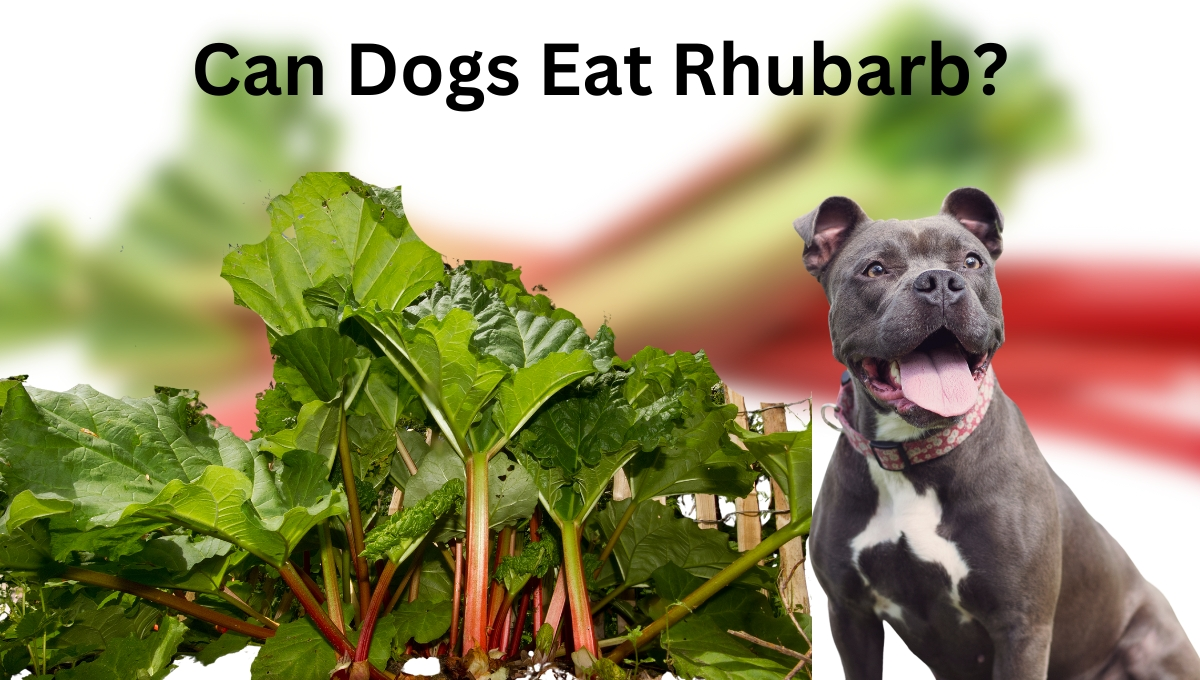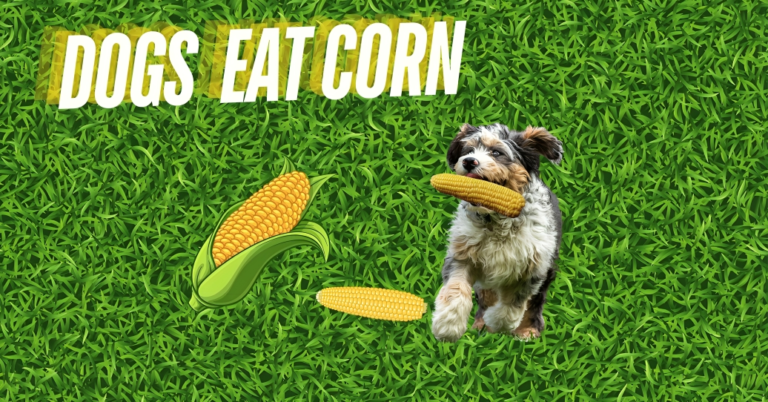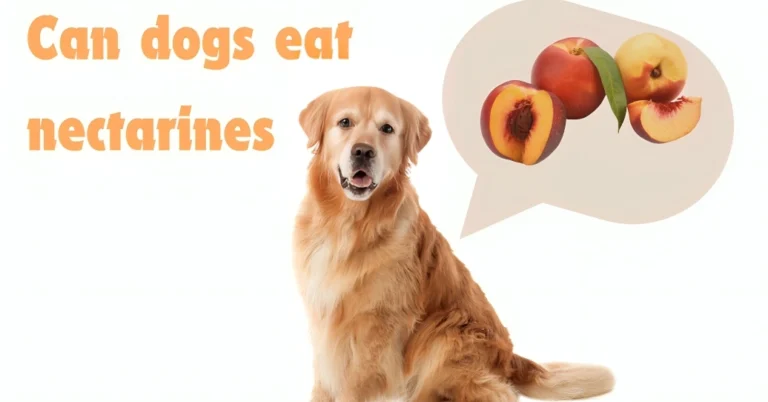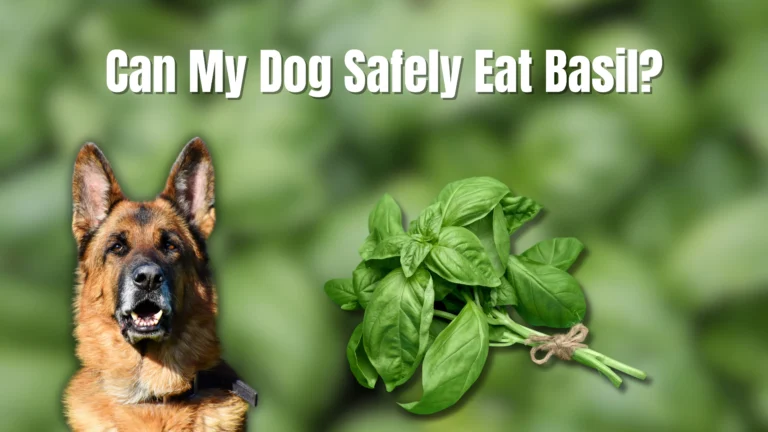Can Dogs Eat Rhubarb?
Rhubarb, while a nutritious vegetable for humans, is highly toxic to dogs due to the oxalic acid it contains, especially in its leaves and roots. Even small amounts of rhubarb, whether cooked or raw, can cause severe reactions in dogs, including drooling, labored breathing, and a swollen tongue. Though most dogs find the sour taste off-putting, any accidental ingestion requires immediate veterinary attention. Can Dogs Eat Rhubarb? The oxalate crystals in the plant can lead to dangerous symptoms like gastrointestinal distress and oxalate poisoning. Pet owners should be cautious and keep dogs away from rhubarb plants to prevent accidental poisoning.
5 Health Risks of Rhubarb for Dogs
Rhubarb toxicity in dogs can lead to a range of health issues, from mild skin irritation to severe organ damage. Swelling, especially around the mouth and airways, can cause labored breathing, while gastrointestinal problems like vomiting and diarrhea are common due to the plant’s high fiber and oxalate content. In severe cases, rhubarb poisoning may lead to heart complications or kidney failure, as oxalate crystals disrupt bodily functions. If your dog shows symptoms such as blood in urine or difficulty breathing after contact with rhubarb, immediate veterinary attention is crucial.
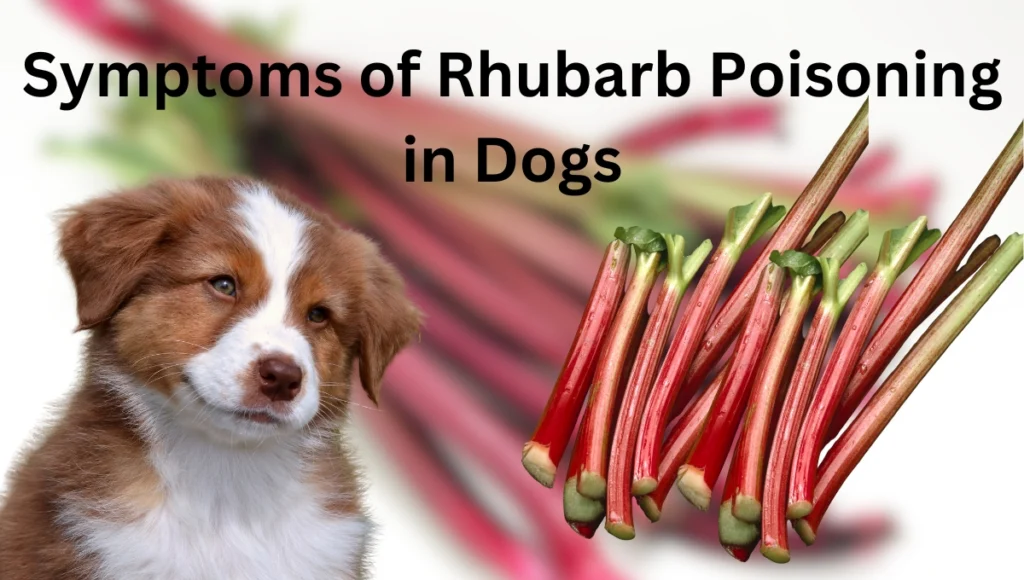
Symptoms of Rhubarb Poisoning in Dogs
Rhubarb ingestion can be hazardous for dogs due to calcium oxalate crystals, especially in the leaves. These crystals can cause immediate symptoms like vomiting, diarrhea, and excessive drooling, while more severe effects such as kidney failure or cardiac issues may develop as the toxins accumulate. The crystals bind with calcium in the dog’s bloodstream, leading to kidney stones and other complications like lethargy, tremors, and bloody urine. Neurological symptoms and muscle weakness can also occur when calcium levels drop. Prompt veterinary attention is crucial to prevent long-term damage or life-threatening conditions.
What is Rhubarb Poisoning?
Rhubarb poisoning in dogs occurs when they ingest the plant’s leaves, which contain toxic calcium oxalate crystals. These crystals cause immediate irritation, swelling, and pain in the mouth, throat, and gastrointestinal tract. If left untreated, the toxins can enter the bloodstream, leading to serious complications like kidney damage and calcium depletion. Early signs of poisoning include vomiting, drooling, and lethargy, but rapid veterinary care is essential to prevent severe outcomes. Preventing access to rhubarb is the best way to protect dogs from this dangerous plant.
What Veggies Are Safe for Dogs to Eat?
Rhubarb is highly unsafe for dogs due to toxic compounds like oxalic acid, particularly in its leaves. Even though cooking can slightly reduce the toxicity, it doesn’t eliminate the risk. Ingesting rhubarb can cause symptoms such as vomiting, difficulty breathing, and even kidney failure in severe cases. Given its low nutritional value for dogs and the potential health risks, it’s best to avoid feeding rhubarb to your pet. Instead, opt for safer and more nutritious vegetables like carrots, broccoli, or sweet potatoes.
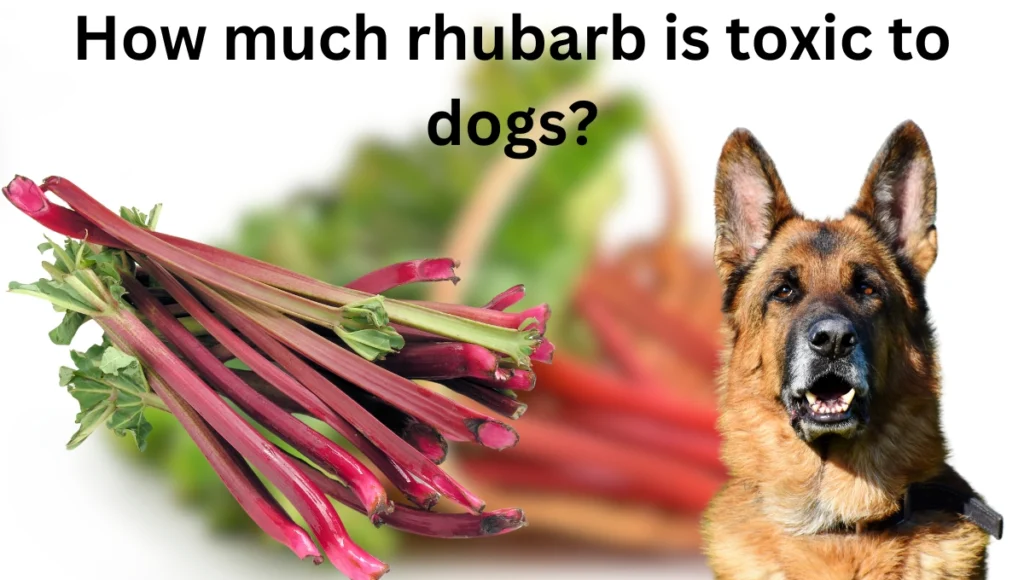
How much rhubarb is toxic to dogs?
Rhubarb poses mild to moderate toxicity risks for pets due to its calcium oxalate crystals, which can irritate the mouth and digestive system, and potentially lead to kidney or bladder stones. The leaves of the rhubarb plant are especially dangerous as they contain a high concentration of these harmful crystals, while the stems are less toxic but still not recommended. Ingesting rhubarb can cause a range of symptoms in dogs, including excessive drooling, vomiting, diarrhea, and even kidney failure in severe cases. It’s crucial to keep rhubarb out of reach and avoid feeding it to dogs, especially those with pre-existing kidney issues or small breeds that are more susceptible to oxalate-related problems.
What Are Alternative Safe Natural Treats for Dogs?
When selecting treats for your dog, opt for safe alternatives to rhubarb that offer nutritional benefits. Fruits like apples, blueberries, and bananas are rich in vitamins and antioxidants, supporting your dog’s overall health. Vegetables such as carrots, green beans, and sweet potatoes provide essential nutrients and fiber while being easy on the digestive system. Additionally, specialty treats like Biscuit Bakes, which feature fruit flavors such as blueberry and banana, are both tasty and beneficial for your pet. These options ensure that your dog enjoys delicious and healthy treats without the risks associated with rhubarb.

